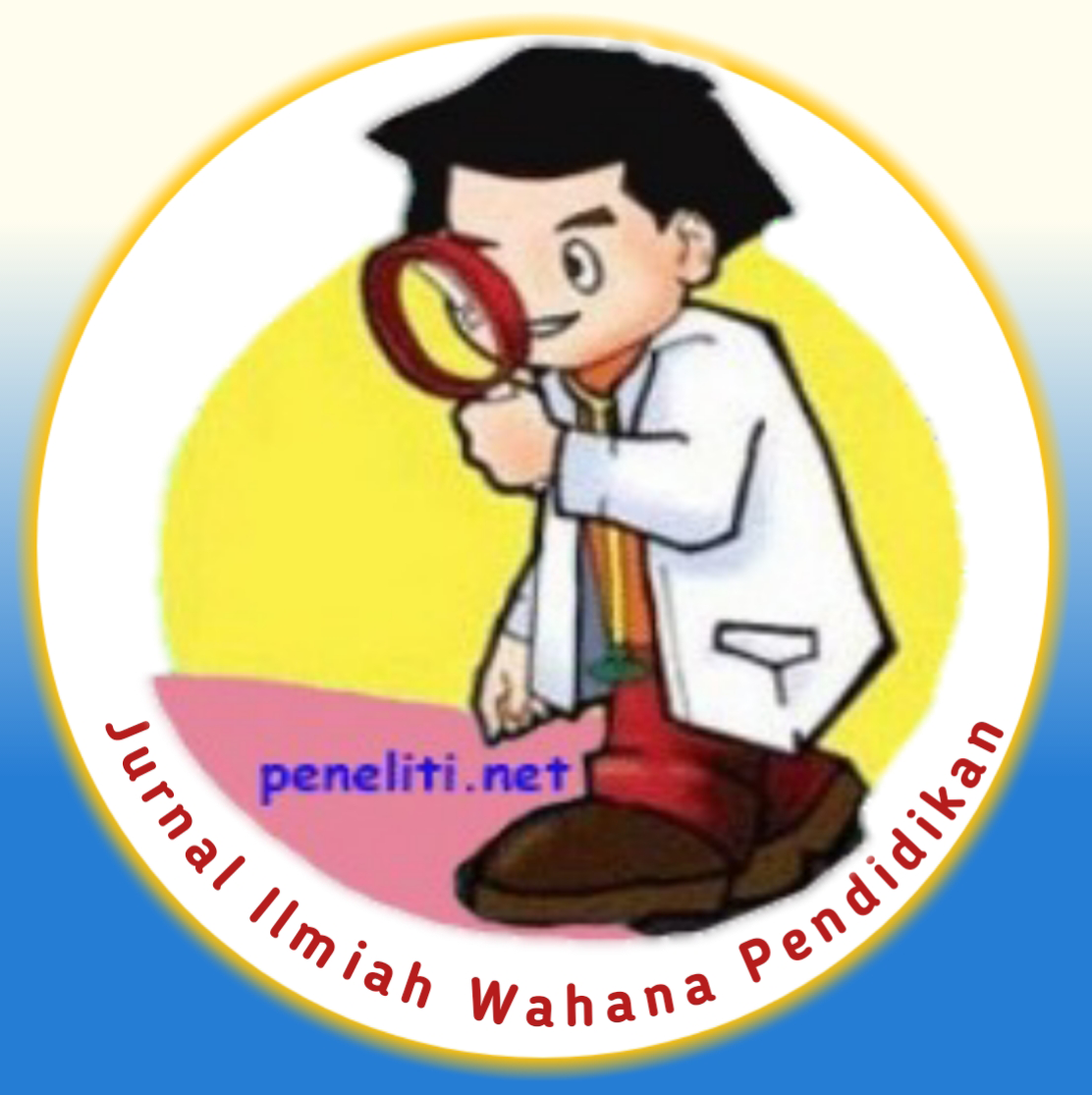The Effectiveness of Memrise as a Vocabulary Learning Tool
A Literature Review
Abstract
This research examines the effectiveness of Memrise, a mobile vocabulary learning app, in enhancing vocabulary retention for language learners. In the context of digital advancements reshaping education, Memrise's gamified approach provides an engaging platform for vocabulary mastery. Drawing on cognitive theories, including Cognitive Load Theory and Spaced Repetition, the study analyzes how Memrise utilizes these principles to bolster vocabulary retention. Through a literature review of 20 sources, common themes, patterns, discrepancies, and future research suggestions are identified. Findings underscore Memrise's potential in vocabulary learning, with themes including mobile app preferences, gamification, motivation, autonomy, and technical considerations. While nuances exist, the overall consensus supports Memrise's positive impact on language education. The study underscores the need for further research to explore wider contexts, replication, and addressing technical aspects. Ultimately, Memrise demonstrates promise in improving vocabulary acquisition through its gamified interface, contributing to the evolving landscape of language education.
References
Abarghoui, M. A., & Taki, S. (2018). Measuring the Effectiveness of using “Memrise” on High school Students’ Perceptions of Learning EFL. Theory and Practice in Language Studies, 8(12), 1758. https://doi.org/10.17507/tpls.0812.25
Affandi, M. H., & Syafi’i, A. (2018). Memrise As A Builder Students Vocabulary. Efektor, 5(1), 32–38. https://doi.org/10.29407/e.v5i1.11921
Aminatun, D., & Oktaviani, L. (2019a). USING “MEMRISE” TO BOOST ENGLISH FOR BUSINESS VOCABULARY MASTERY: STUDENTS’ VIEWPOINT. PROCEEDINGS UNIVERSITAS PAMULANG, 1(1). http://openjournal.unpam.ac.id/index.php/Proceedings/article/download/4715/3520
Aminatun, D., & Oktaviani, L. (2019b). Memrise: Promoting Students’ Autonomous Learning Skill through Language Learning Application. Metathesis, 3(2), 214. https://doi.org/10.31002/metathesis.v3i2.1982
Bjork, R. A., & Bjork, E. L. (1992). A new theory of disuse and an old theory of stimulus fluctuation. In A. F. Healy, S. M. Kosslyn, & R. M. Shiffrin (Eds.), Essays in honor of William K. Estes, Vol. 1. From learning theory to connectionist theory; Vol. 2. From learning processes to cognitive processes (pp. 35–67). Lawrence Erlbaum Associates, Inc.
Çelik, S., & Aytin, K. (2014). Teachers’ views on digital Educational tools in English Language learning: Benefits and challenges in the Turkish context. TESL-EJ, 18(2). http://files.eric.ed.gov/fulltext/EJ1045127.pdf
Cepeda, N. J., Pashler, H., Vul, E., Wixted, J. T., & Rohrer, D. (2006). Distributed practice in verbal recall tasks: A review and quantitative synthesis. Psychological Bulletin, 132(3), 354–380. https://doi.org/10.1037/0033-2909.132.3.354
Curry, D. (2023, January 9). Memrise Revenue and Usage Statistics (2023) - Business of Apps. Business of Apps. Retrieved February 1, 2023, from https://www.businessofapps.com/data/memrise-statistics/
Esmaeili, Z., & Shahrokhi, M. (2020). The impact of Memrise application on Iranian EFL learnersâ€TM collocation learning and retention. IJoLE (International Journal of Language Education). https://doi.org/10.26858/ijole.v4i2.10672
Fadhilawati, D. (2016). LEARNING AND REVIEWING VOCABULARY THROUGH MEMRISE TO IMPROVE STUDENTS’ VOCABULARY ACHIEVEMENT. JARES (Journal of Academic Research and Sciences), 1(2), 4. https://doi.org/10.35457/jares.v1i2.419
Fadhilawati, D., Rachmawati, D. L., Hastari, S., & Nehru, N. A. (2022). BELAJAR VOCABULARY DENGAN MENYENANGKAN MELALUI APLIKASI MEMRISE DAN QUIZLET DI MAN KOTA BLITAR. JURNAL PENGABDIAN MANDIRI, 1(10), 1875–1886. https://bajangjournal.com/index.php/JPM/article/view/3728
Fadhilawati, D., Ulum, B., & Rachmawati, D. L. (2022). Implanting Vocabulary for Long Terms Memory through Memrise and Quizlet Applications. Jurnal Pendidikan Indonesia, 11(1), 34–42. https://doi.org/10.23887/jpi-undiksha.v11i1.29504
Fathi, J., Alipour, F., & Saeedian, A. (2018). Enhancing vocabulary learning and self-regulation via a mobile application: An investigation of the Memrise app. Journal of Modern Research in English Language Studies, 5(1), 27–46. https://doi.org/10.30479/jmrels.2019.10311.1282
Karanfil, F., & Özet, M. N. (2021). How EBA (Educational Informatics Network) platform and Memrise may help EFL learners: A review for state school EFL learners in Turkey. Journal of Foreign Language Education and Technology, 6(1), 76–91. https://www.jflet.com/articles/how-eba-educational-informatics-network-platform-and-memrise-may-help-efl-learners-a-review-for-state-school-efl-learner.pdf
Karjo, C. H., & Andreani, W. (2018). Learning Foreign Languages With Duolingo and Memrise. ICDEL ’18: Proceedings of the 2018 International Conference on Distance Education and Learning. https://doi.org/10.1145/3231848.3231871
Li, G., Sun, Z., & Jee, Y. (2019). The more technology the better? A comparison of teacher-student interaction in high and low technology use elementary EFL classrooms in China. System, 84, 24–40. https://doi.org/10.1016/j.system.2019.05.003
Łuczak, A. (2017). Using Memrise in legal English teaching. Studies in Logic, Grammar and Rhetoric, 49(1), 141–152. https://doi.org/10.1515/slgr-2017-0009
McCain, A. (2023, June 21). How Fast Is Technology Advancing? [2023]: Growing, Evolving, And Accelerating At Exponential Rates. Zippia. Retrieved February 1, 2023, from https://www.zippia.com/advice/how-fast-is-technology-advancing/
Memrise Inc. (2019). What is Memrise? Retrieved February 1, 2023, from https://www.memrise.com/about/
Nhu, P. T. T., & Quyen, T. N. Q. (2021). IMPROVING VOCABULARY LEARNING WITH MEMRISE MOBILE APPLICATION FOR STUDENTS IN VIETNAM. International Journal on E-Learning Practices, 4. https://jurcon.ums.edu.my/ojums/index.php/ijelp/article/view/3426
Nuralisah, A. S., & Kareviati, E. (2020). THE EFFECTIVENESS OF USING MEMRISE APPLICATION IN TEACHING VOCABULARY. Project (Professional Journal of English Education). https://doi.org/10.22460/project.v3i4.p494-500
Nurani, E. S. D., Fikri, D., & Rahmawati, H. (2023). ENGLISH STUDENTS’ PERCEPTIONS OF THE USE OF MEMRISE APPLICATION IN LEARNING ENGLISH VOCABULARY INDEPENDENTLY. Jurnal Penelitian, Pendidikan, Dan Pembelajaran, 18(25). http://jim.unisma.ac.id/index.php/jp3/article/view/21509
Pelet, J. (2014). E-Learning 2.0 technologies and web applications in higher education. In Advances in higher education and professional development book series. https://doi.org/10.4018/978-1-4666-4876-0
Perkins, D. N., & Salomon, G. (1989). Are cognitive skills Context-Bound? Educational Researcher, 18(1), 16. https://doi.org/10.2307/1176006
Quyen, T. N. Q. (2022). IMPROVE STUDENTS’ ENGLISH VOCABULARY WITH THE MEMRISE MOBILE APPLICATION. International Journal on E-Learning Practices, 5. https://jurcon.ums.edu.my/ojums/index.php/ijelp/article/view/4095
Roediger III, H. L., & Karpicke, J. D. (2006). Test-Enhanced learning. Psychological Science, 17(3), 249–255. https://doi.org/10.1111/j.1467-9280.2006.01693.x
Rohim, R. F. (2022). The effect of Memrise application towards students’ vocabulary mastery. JELL (Journal of English Language Learning), 6(2), 194–198. https://doi.org/10.31949/jell.v6i2.3656
Rumelhart, D. E., & McClelland, J. L. (1986). Parallel distributed processing: explorations in the microstructure of cognition, vol. 1: foundations. In MIT Press eBooks. https://dl.acm.org/citation.cfm?id=104279
Sweller, J. (1988). Cognitive load during problem solving: Effects on learning. Cognitive Science, 12(2), 257–285. https://doi.org/10.1207/s15516709cog1202_4
Taebenu, S. F., & Katemba, C. V. (2021). VOCABULARY ENHANCEMENT THROUGH MEMRISE AND GOOGLE CLASSROOM. Language Literacy, 5(1), 228–241. https://doi.org/10.30743/ll.v5i1.3813
Zohoorian, Z., Noorbakhsh, M., & Zeraatpisheh, M. (2022). EFL Learners’ Vocabulary Achievement and Autonomy: using Memrise Mobile Application. Indonesian Journal of EFL and Linguistics, 7(2), 233. https://doi.org/10.21462/ijefl.v7i2.487
Zuniati, R. D., Suwarti, T. S., & Setyorini, A. (2023). The use of Memrise Application in Improving Students’ Vocabulary Mastery at the 8th grade of Junior High School. CENDEKIA: Jurnal Ilmu Sosial, Bahasa Dan Pendidikan, 3(4), 09–16. http://prin.or.id/index.php/cendikia/article/view/1693




